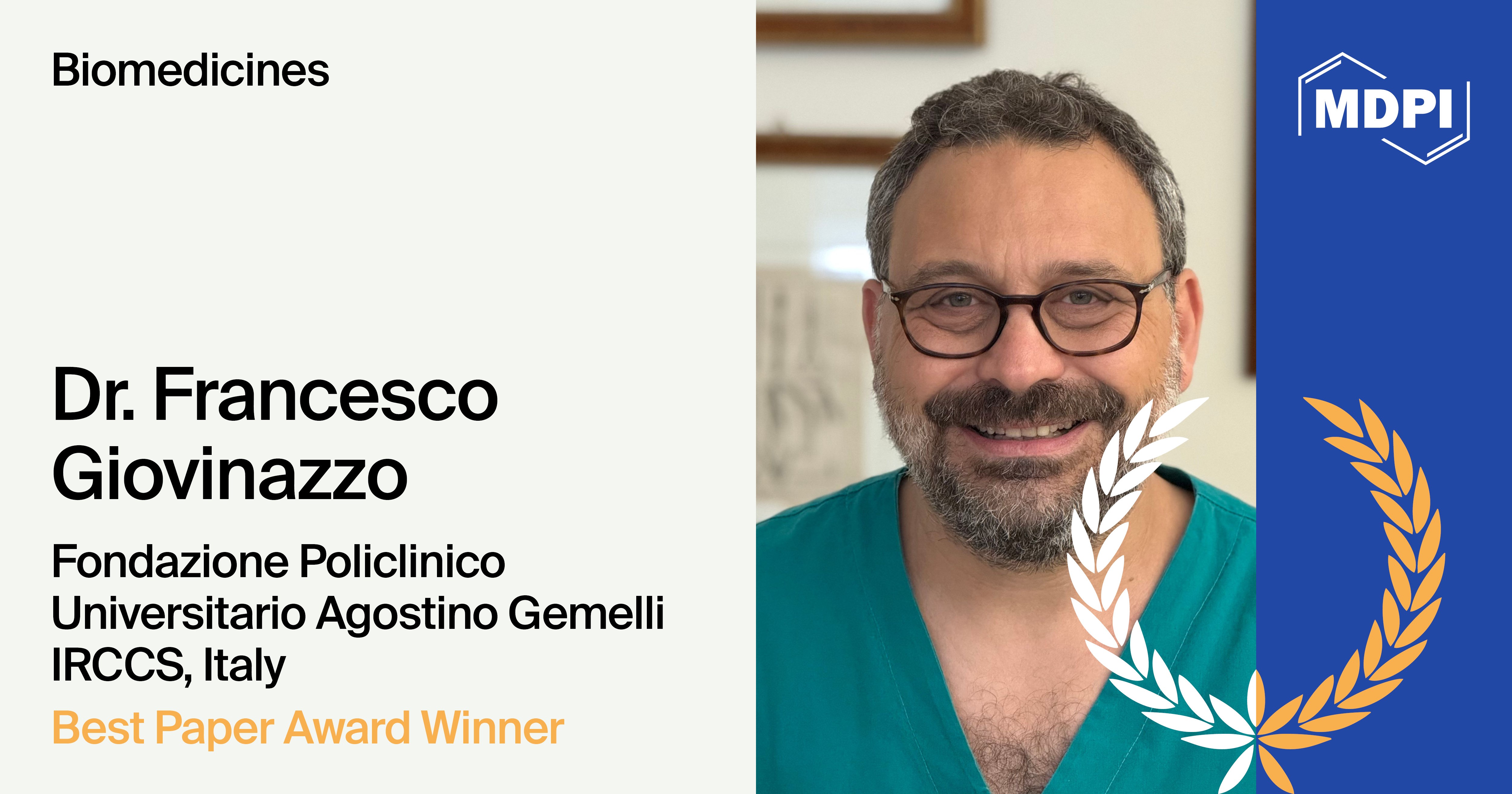
Interview with Dr. Francesco Giovinazzo—Winner of the Biomedicines Best Paper Award
We recently had the opportunity to interview Dr. Francesco Giovinazzo about his paper “Exploring the Multifaceted Landscape of MASLD: A Comprehensive Synthesis of Recent Studies, from Pathophysiology to Organoids and Beyond”, which was published in Biomedicines (ISSN: 2227-9059) and has received a significant amount of positive feedback from our readers.
The following is an interview with Dr. Francesco Giovinazzo:
1. Congratulations on your published paper! Could you please briefly introduce the main research content of the published paper?
Thank you very much. Our paper examines the multifactorial nature of MASLD (Metabolic Dysfunction-Associated Steatotic Liver Disease) and its increasing relevance. We provide an updated synthesis of the disease’s metabolic and molecular underpinnings. We also discuss the clinical implications of liver steatosis and highlight the promise of liver organoids as translational models for therapeutic innovation.
2. Can you tell us a little bit about yourself and your current research?
I am a surgical oncologist with a focus on hepatobiliary and colorectal cancer. Clinically, I perform complex liver resections, often for patients with colorectal liver metastases or hepatocellular carcinoma. My current research is centred on how metabolic liver disease, particularly MASLD, affects surgical outcomes, tumour biology, and chemotherapy response.
3. Please share what inspired your research?
In the daily clinical practice, an increasing number of oncology patients present with steatotic or fibrotic livers, often due to underlying MASLD. These patients present specific challenges in terms of surgical risk, liver regeneration, and long-term prognosis. That observation sparked the idea to consolidate current knowledge and raise awareness in the surgical community about how MASLD can impact oncological treatment and decision-making.
4. What was the biggest challenge you faced while writing this paper, and how did you overcome it?
The biggest challenge was integrating the molecular and experimental literature. To overcome this, we formed a multidisciplinary team and focused on delivering clinically actionable insights.
5. How did feedback during your research influence your direction?
Feedback from colleagues was extremely valuable. It helped us fine-tune the clinical framing of the paper. It highlighted the importance of covering aspects such as steatosis-induced liver fragility and the impact on metabolism in patients with MASLD.
6. What role did you play in your research team, and how did teamwork affect the paper’s outcome?
I led the clinical direction of the paper. However, teamwork is central. Each author had their unique expertise. This interdisciplinary dialogue ensured the review was not only scientifically solid but also clinically grounded and forward-looking.
7. Why did you choose the Biomedicines journal as a platform for publishing your work, and how was your experience?
We chose Biomedicines because it values translational research and provides excellent visibility across both clinical and experimental fields. The editorial process was smooth, and the reviewers’ comments helped strengthen the clarity and depth of our message. The manuscript was a very positive experience overall.
8. What impact do you hope your research will have, and what key innovation do you see in your paper?
We hope the paper raises awareness of the clinical relevance of MASLD in cancer patients. The key innovation lies in our integrative approach, which promotes organoid technology as a future tool for personalised medicine and drug testing.
9. What do you think the future directions for your research are?
Our next steps involve studying liver changes related to MASLD in patients undergoing liver resection, specifically regarding fibrosis grading, regeneration capacity, and chemotherapy-associated liver injury. We are also expanding our work on patient-derived organoids to predict treatment responses better and refine surgical indications in metabolically compromised livers.